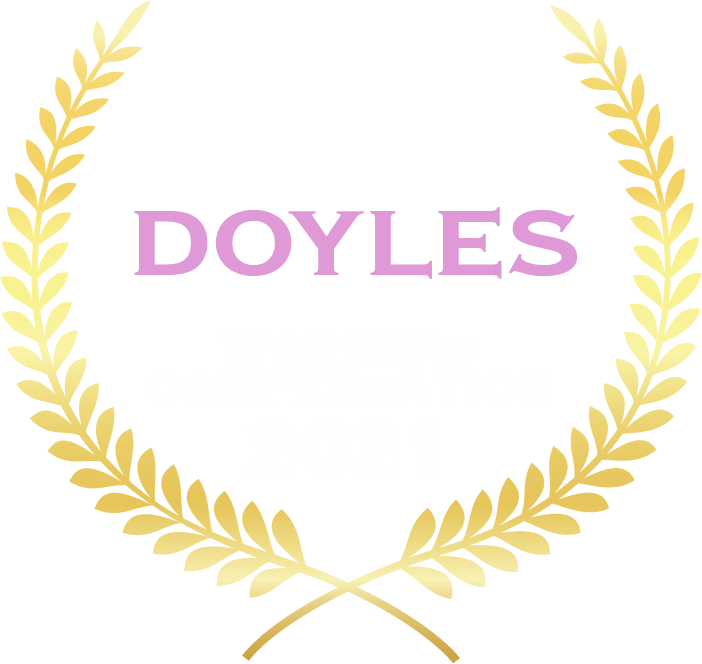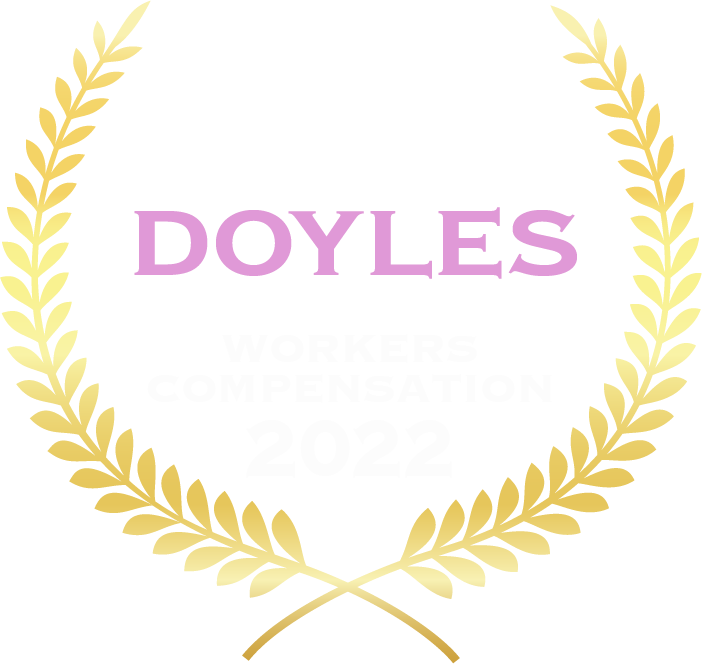Workcover lump sums at a glance
- Injured workers may be entitled to common law damages if they are permanently impaired due to a workplace injury or accident caused by the employer’s negligence.
- A lump sum compensation claim is made once the injury is stable.
- An injury is typically considered “stable” after 12 months.
- Injured workers are entitled to an impairment benefit, a “no-fault” lump sum which is assessed against an “impairment threshold”. The assessment of impairment is performed by an accredited medical practitioner (known as an independent medical examiner).
Workers Compensation Lump Sum Settlements in Victoria
Under the WorkCover scheme in Victoria, you may be entitled to a lump sum payment if you have been injured at work or contracted an illness at work which has resulted in a permanent impairment.
This payment is additional to your “statutory entitlements” of weekly payments and medical and like expenses for a no-fault workplace injury claim.
If your workplace injury/illness is a result of employer negligence you may also be able to sue for damages. A “damages” settlement is compensation for the pain and suffering/loss of enjoyment of life; and/or the economic loss you have and will continue to suffer as a result of your injury.
Lump sum payments are paid on top of the weekly provisional payment amounts. Claims for “damages” must be made after the permanent impairment payout. Workers compensation is a type of insurance managed by WorkSafe known as WorkCover. Most Australian workers are entitled to claim no-fault WorkCover benefits, but it’s important to note that each State is governed by different legislation. WorkSafe is the OHS arm of the Victorian WorkCover Authority.
Although WorkSafe manages WorkCover, lump sum workers compensation is determined by negotiations with the Insurer. When considering whether you are entitled to a lump sum for your injuries, it is important to remember there are two types of lump sum payments – impairment benefits and common law claim (employer negligence).
When lodging a compensation claim for a work-related injury it is important to understand what is available to you to ensure you receive your full entitlements. Workers compensation claims can be complex, stressful and time-consuming. Dealing with Government authorities and disputing or proving your claim can be daunting, especially when you are also trying to recover from your accident, injury or trauma.
Our helpful, informative workers compensation payout guide explains everything you need to know about workers compensation and lump sum settlements in Australia. Knowledge is vital when trying to retrieve the maximum compensation you deserve.
We strongly recommend getting legal advice and contacting a specialist compensation lawyer who can fight your corner, act on your behalf, and help navigate the challenging lump sum benefits claims process and the legalities behind making a claim. Call our workcover lawyers today.
Our team at Maxiom Injury Lawyers are passionate advocates of social justice. We fight relentlessly to ensure that our clients receive their full legal entitlements to recover from the loss they have suffered. We can provide an avenue for you to pay for the treatment or rehabilitation you need to recover from your injury.
Can I get a lump sum workers compensation payout for my workplace injury?
Yes, you can get a lump sum workers compensation payout for your workplace injury if you can prove that you have sustained a significant and permanent injury. You may also be able to sue for further “damages” if it can be proved that your injury occurred as a result of employer’s negligence. The workers compensation lump sum is awarded to workers if they are entitled to a permanent impairment payout or a work injury damages payout.
Can I claim a work injury damages lump sum?
Yes, you can claim a work injury damages lump sum if you have suffered a serious injury and your work injury resulted from employer negligence.
What are the types of workers compensation injury lump sum payments?
An injured worker lodging a compensation claim for a work-related injury in Victoria is entitled to two types of lump sum payments under WorkCover legislation:
- Impairment benefits / permanent impairment claim
- Common law damages for your pain and suffering, and economic loss.
The kind of lump sum payment depends on a variety of factors.
| Impairment Claim | Common Law Claim |
|---|---|
| Based on whole person impairment % | May be compensated for pain and suffering and loss of income |
| Injury must be stable before proceeding to claim | Injury must be stable before proceeding to claim |
| Fixed compensation amounts (these are based on the whole-person impairment rating) | Must prove negligence by employer or another party |
| Do not need to prove negligence | Must prove you have a serious and permanent injury that is significantly impacting your life |
Once you have lodged your WorkCover claim and it has been accepted, you can potentially access several WorkCover entitlements. If you have suffered an injury that requires ongoing medical treatment or time off work you can access “no-fault benefits” for up to 130 weeks. Where it is thought that your injury is long-term or has significantly impacted your life you may be able to claim a lump sum impairment benefit and/or common law claim.
Impairment versus Common Law claims
What is the difference between an Impairment claim and a Common Law claim for damages?
The main difference between an “impairment claim” and “common law claim” is fault.
In an impairment benefit claim, your injuries will be assessed on the degree of whole-person impairment; whereas in a common law claim you will be independently assessed to learn how your injuries have impacted your life, your future earnings and your ability to work.
In addition, when making a common law claim your lawyer must prove there has been a breach in duty of care.
Impairment Benefit Claim
What is an impairment benefit claim?
A permanent impairment payout, also known as an impairment benefit claim, is a lump sum to cover a stable significant injury sustained through a work-related injury or illness.
An impairment benefit claim is a separate entitlement to any other WorkCover entitlement and is paid in addition to your income payments, benefits and medical expenses. This lump sum once-off payment to compensate you for permanent impairment does not count as income and is based on the severity of your injury/injuries. It is open to someone that has suffered a work-related injury or illness resulting in permanent impairment. The impairment benefit amount is not based on any loss of earnings.
For the impairment benefits to apply, the impairment must be assessed by a specially trained medical physician as permanent or significant.
The amount paid out is based on the percentage rate the assessing doctor has given and is a fixed amount. The degree of impairment is based on a set of guides and instructions given to independent medical examiners assessing your injury. They will consider factors such as loss of functions or range of motion. Illness or stress-related injuries that have been determined as so severe that they have caused lasting damage is also based on the percentage determined by the impairment percentage threshold. Mental illness claims for impairment benefits are often hard to prove.
You may also not be eligible if you have recovered from your accident but still have a loss of bodily or mobility functions, such as a broken arm that has healed. Examples of permanent injury include (but are not limited to): spinal cord injuries, disfigurements, amputations, permanent loss of shoulder movement or severe mental disorders.
The impairment percentage threshold graded by a special doctor will determine the amount of compensation available to you. As a general rule – the higher the percentage of impairment, the greater the entitlement. But there are exceptions.
Can I get my own doctor to assess my impairment?
No, you cannot have your injuries assessed and the impairment percentage graded by your own treating doctors or specialists. Instead, your injuries must be graded by a specialist that has undergone training that allows them to grade injuries and impairments in legal matters.
When can I make a claim for impairment benefit?
You can make a claim for an impairment benefit 12 months after your injury, provided your condition is permanent and stable. The claims process takes four months (120 days), during which time you will be examined by an Independent Medical Examiner who will assess your impairment level against injury thresholds.
How long does an impairment benefit claim take?
A claim for impairment benefit takes up to four months (120 days), during which time you will be examined by an Independent Medical Examiner who will assess your impairment level against injury thresholds. The majority of impairment benefits claims do not go to court. However, if you are not happy with the initial compensation amount offered and assessment results it is possible to appeal the decision.
The claim will then be sent to a medical panel of around 2 – 5 doctors that will reassess and review your claim. They will then increase, decrease or keep your entitlement amount the same as the initial assessment. The medical panel’s opinion is, for the most part, the final and binding offer. However, in limited cases, this can be appealed further.
Common Law Damages Claim
What is a common law damages claim?
A common law damages claim is a lump sum payment that recognises the pain, suffering, and economic loss resulting from an injury caused through another party’s negligence.
A common law damage claim differs from an impairments claim, as it requires you to show and prove the negligence or failure of duty of care. In the context of workers compensation, an injured Victorian worker must prove that the negligence of their employer has contributed to the illness for the claim to succeed.
Failure to prove the negligence will result in an unsuccessful common law damages case. The pressure for proof and the prospect of negotiations and debate when pursuing a common law claim is often intimidating, but the payment amounts of common law claims can be substantial and most cases are settled out of court.
Common law damage claims are often larger than lump sums paid under the impairment benefit scheme because negligence is a key factor for a claim win, along with the seriousness and the impact the injury or damage has on the life, livelihood and future of the injured party. Common law payments also consider the level of medical and personal care that the injured party may require in the future, the severe nature of the injury, and the timeline for recovery.
It is your lawyer’s job to calculate the amount you can claim based on the loss of earnings and the loss of enjoyment of life you experience as a consequence of your injury. Common law claims can sometimes end up in court, but more often than not, all matters are settled between both parties beforehand through a settlement conference or mediation.
Cases can take longer when both parties cannot reach a settlement and must be contested in court. Pursuing and contesting common law claims can be costly, requiring additional medical proof, reports, hearings, barrister briefs, and countless negotiations with the WorkCover Insurer claim agents, but the financial rewards can be considerable.
Contact us today. We are no-win no-fee lawyers who will fight in your corner and stop at nothing to make your case successful. We have a high success rate and will try, when possible, to spare the costly and lengthy court process. We have a high success rate and have settled hundreds of cases in and out of court. We can mediate, argue, dispute and represent you to ensure you get the compensation you deserve.
Should I choose an Impairment Benefits Claim or Common Law Damages Claim lump sum payments?
What lump sum claim you choose depends on your circumstances and the likelihood of claim success. For example, in some instances, it may make more sense to lodge a common law claim and skip the lodgement of an impairment claim if you do not have the requirements for a successful claim. If you do have a viable common law claim, it is important that your impairment benefit is factored into the assessment of your damages.
It is best to seek legal advice to determine what lump sum claim suits your situation.
Can I appeal a decision made by WorkCover?
Yes, you can appeal and challenge a decision made by the WorkCover Insurer that you disagree with. A worker has every right to lodge a request for conciliation with the Workplace Injury Commission according to the Workplace Injury and Rehabilitation Act 2013 (WIRC Act). The request for conciliation must be lodged 60 days after the Insurer’s decision.
You could dispute any decisions made by the WorkCover Insurer, not just the compensation amount, including:
- Initial rejection of your WorkCover claim
- The termination of medical expenses
- Treatment requests such as surgery or psychologist visit rejections
- Failure to calculate the average pre-injury weekly earnings correctly by the Insurer
- Failure to appropriately assess as 98C or lump sum claims by the Insurer
- The termination of weekly payments
Termination of weekly payments
Your WorkCover Insurer may choose to terminate your weekly payments after 130 weeks. Often this is because the WorkCover Insurer has determined that you can now resume some form of work and are no longer entitled to weekly payments.
It can be difficult to show that you need to receive weekly payments beyond the 130-week limit and that you do not have the capacity to return to your old job or that you cannot return to some form of employment.
Do all Workers Compensation cases end in a settlement?
No, all workers compensation cases do not end in a settlement.
Your workers compensation benefits can settle if you are awarded common law damages for your economic loss.
What if I am unhappy with the final Workers Compensation claim decision?
Workers who disagree with a workers compensation claim decision and wish to dispute the decision can do so by filing an Application for Conciliation with the Workplace Injury Commission. The process is free and informal.
What is the Workplace Injury Commission?
Workplace Injury Commission (WIC) is a part of the Victorian workers compensation scheme that provides conciliation services at no extra cost to injured workers.
The WIC also facilitates the resolution of disputes with their fair, economical, informal, and quick process by involving all parties, including the injured worker, the employer, WorkSafe Agents, and Insurers, to facilitate a reasonable, fast, and fair dispute outcome.
Workers injured on or after 1 September 2022 will have access to the new arbitration service.
What is Arbitration?
Arbitration is a new service available to workers with injuries sustained at work on or after 1 September 2022. It will provide a final decision for WorkCover (worker compensation) disputes that could not be resolved through conciliation.
Arbitration was established as an outcome of the Victorian Ombudsman’s 2019 report WorkSafe 2: Follow-up investigation into the management of complex workers compensation claims to improve the dispute resolution process.
When conciliation is unsuccessful in resolving a dispute, the Conciliation Officer issues a “Genuine Dispute Certificate”. The Genuine Dispute Certificate previously only entitled the worker to issue a case in the Magistrates’ Court to take the dispute further. The entitlement to go to Court remains; however, there is now another option.
The new Arbitration process allows the worker to have their matter heard before an Independent Arbitration Officer. There will be an evidence-based hearing and a final decision made.
You can find out more about the new Arbitration service here.
We strongly recommend you obtain legal advice before referring a dispute to Arbitration. We have an experienced team of Work Compensation Claim lawyers, and Personal Injury Law Accredited Specialists who can advise you on all aspects of your entitlements.
Can I apply for Arbitration?
Yes, you can apply for Arbitration for your worker compensation claim if your dispute has not been resolved and a Genuine Dispute Certificate has been issued.
According to the Workplace Injury Commission, you are entitled to arbitration if:
- The date of your injury is on or after September 1, 2022.
- You have a Genuine Dispute Certificate issued at conciliation.
- Your dispute is related to one or more of the following:
- Weekly payments.
- Medical and like expenses.
- Superannuation contributions.
- Interest on an outstanding amount.
How do I get an arbitration for a worker compensation claim dispute started?
To commence arbitration for a workers compensation dispute, we recommend you visit the Workplace Injury Commission Website, review their Arbitration fact sheet and download the correct forms. To get started, complete this Referral for Arbitration form and provide your Genuine Dispute Certificate (issued at conciliation).
How do I get the most out of my compensation payout?
To get the most out of your compensation claim, you must put forward a solid case that demonstrates that your injury was sustained due to an injury suffered by your workplace environment. An employer’s Insurer will try to pay the least compensation possible.
To file a strong case for the maximum compensation, you need to understand how to build evidence to support your claim and work alongside an expert negotiator.
Getting all the research and know-how is a great start, and if you’ve come this far in our guide, you’re on the right path!
How do you win a workers compensation claim in Melbourne?
There are five steps Maxiom Injury Lawyers suggest you take for a successful workers compensation and to ensure you achieve the maximum compensation you deserve.
- Always keep the evidence. This includes photos, witness details, and every person involved during the process, including medical personnel. It is better to have the information and not need it than need it and not be able to obtain it. So make sure you collect all the information, write it down, keep it in a safe, accessible space and get advice on how and when to use these details.
- Obtain the best medical care and all the correct medical proof you need from a registered medical practitioner. Keep all information, including medical records, medical reports, receipts, and travel expenses. Ensure these are ready and on hand.
- Don’t rush into a settlement. We understand wanting the process to be over as quickly and stress-free as possible, but this will not always result in the best outcome for you.
- Be as detailed as you need to be with your lawyer. No detail or information is too much. An expert workers compensation lawyer will take all the details and information you have provided and let you know if any more information is required.
Most importantly- Get legal advice!
The benefits of working with a personal injury lawyer cannot be over-emphasised. Your lawyer has an in-depth understanding of insurance companies’ legal processes and tactics. Their role is to advise you on how to complete the necessary paperwork best to maximise your chances of success, alert you to the required evidence you will need, and help you understand what compensation you might be entitled to.
Talk to a no-win no-fee lawyer and provide them with all the information and details required. No question, concern, or worry is too much. An experienced workers compensation lawyer will have dealt with similar cases and can help advise you on everything you need. Ask questions and get to know them personally. This is your workers compensation claim, and you are entitled to the maximum compensation and the best legal advice to help you win your case.
To get the most out of your compensation payout and win a workers compensation claim, you need a competitive and passionate legal representative with a high success rate that can help you navigate the legal procedures and cut through the tape to get you the maximum compensation you deserve.
Who can help me with my lump sum benefit claim?
Our team at Maxiom Injury Lawyers are passionate advocates of social justice. We will fight relentlessly to ensure that our clients receive their full legal entitlements so they can concentrate on healing from their losses.
We are a dedicated team of Work Injury Lawyers with more than 30 years of experience, and can help you claim rightful entitlements for the following:
- Weekly payments
- Medical and associated expenses
- Impairment benefit
- Lump sum for your pain and suffering
- Loss of earnings
- Superannuation benefits
- Dependency claims; and
- Financial support to help you recover.
Why Maxiom Injury Lawyers?
In our experience, clients receive the most benefit during the legal process when they work with a lawyer who actively listens to their stories and understands their concerns about the legal process.
That’s why at Maxiom Injury Lawyers, you will be partnered with an Accredited Specialist in Personal Injury Law who is accessible when you need it and will advocate for your rights, be your voice and ensure you receive your full and fair entitlements. We are also committed to keeping legal fees low so that you receive the maximum amount of compensation.
We win complex cases
Maxiom Injury Lawyers is proud to have taken on and won complex cases.
Find out where you stand
We can help you navigate the various insurance schemes and provide an avenue for you to pay for the treatment or rehabilitation you need to recover from your injury.
Your Path to Recovery
The path to recovery after an injury can involve significant stress and financial hardship. At Maxiom Injury Lawyers, you will work with a dedicated lawyer who will support you through the entire claims process and help you meet your recovery goals.
Speak to our WorkCover lawyers today
To start your recovery journey, you can contact us anytime via phone or an enquiry form. If you are not quite ready to speak to us, we also offer a Free Claims Check so you can find out if you are eligible to claim for your injury.
FAQs
Can you work after a workers compensation settlement?
Yes, you can work after a workers compensation settlement if you feel ready to do so. Your workers compensation settlement does not prevent you from returning to work if you recover from your injuries.
How do I make a workplace injury claim?
To make a workplace injury claim, you must complete an application form. The fastest and easiest way is to visit the WorkSafe website and complete an injury claim form











